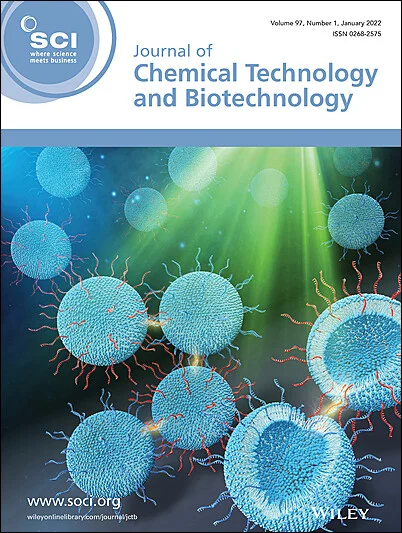Fabrication of an innovative phosphonate Schiff base adsorbent for molybdenum adsorption and its applications for molybdenum adsorption from spent hydrodesulfurization catalyst
Abstract
BACKGROUND
To investigate the recovery of molybdate from water and hydrodesulfurization catalysts, a novel synthesized phosphonate Schiff base, 4,4′-(((2,2-dimethylpropane-1,3-diyl) bis(azaneylylidene)) bis(methaneylylidene)) bis(2-methoxyphenol) (HMI) and 4-(((3-((4-(((S)-hydroxyhydrophosphoryl)oxy)-3-methoxybenzylidene) amino)-2,2-dimethylpropyl)imino)methyl)-2-methoxyphenyl hydrogen phosphonate (HIMP), was utilized. This study aimed to assess the structural and property aspects of this synthesized compound using diverse characterizations, including FTIR, Thermogravimetric Analysis (TGA), mass spectrometry (GC–MS), fluorescence transfer spectra, scanning electron microscopy (SEM), and 1H-NMR, 13C-NMR, and 31P-NMR.
RESULTS
The study systematically examined several factors controlling molybdate recovery, including temperature, adsorbent dosage, pH, interaction time, and molybdate concentration using the batch technique. Optimal sorption effectiveness was achieved at pH 2, with an interaction time of 40 min, a 0.06 g adsorbent dose, at ambient temperature. The newly devised adsorbent exhibited an impressive adsorption capacity (Qe) of 372.54 mg of Mo per gram, with empirical data fitting the Langmuir and D-R adsorption models. The kinetics of molybdate uptake followed second-order kinetics. Thermodynamic aspects, including ΔG°, ΔS°, and ΔH°, were also investigated, providing appreciated perceptions into the energetic dynamics of the sorption process. Additionally, molybdate adsorption in the occurrence of other ions was explored, highlighting the selectivity of the modified phosphonate Schiff base for molybdate removal.
CONCLUSION
The study underscores the potential of the modified phosphonate Schiff base as a crucial adsorbent for molybdate elimination from both solutions and spent hydrodesulfurization catalysts. The findings offer important insights into the adsorption kinetics, thermodynamics, and selectivity of the adsorbent, enhancing our understanding of molybdate recovery processes and their broader applications. © 2024 Society of Chemical Industry (SCI).

 求助内容:
求助内容: 应助结果提醒方式:
应助结果提醒方式:


